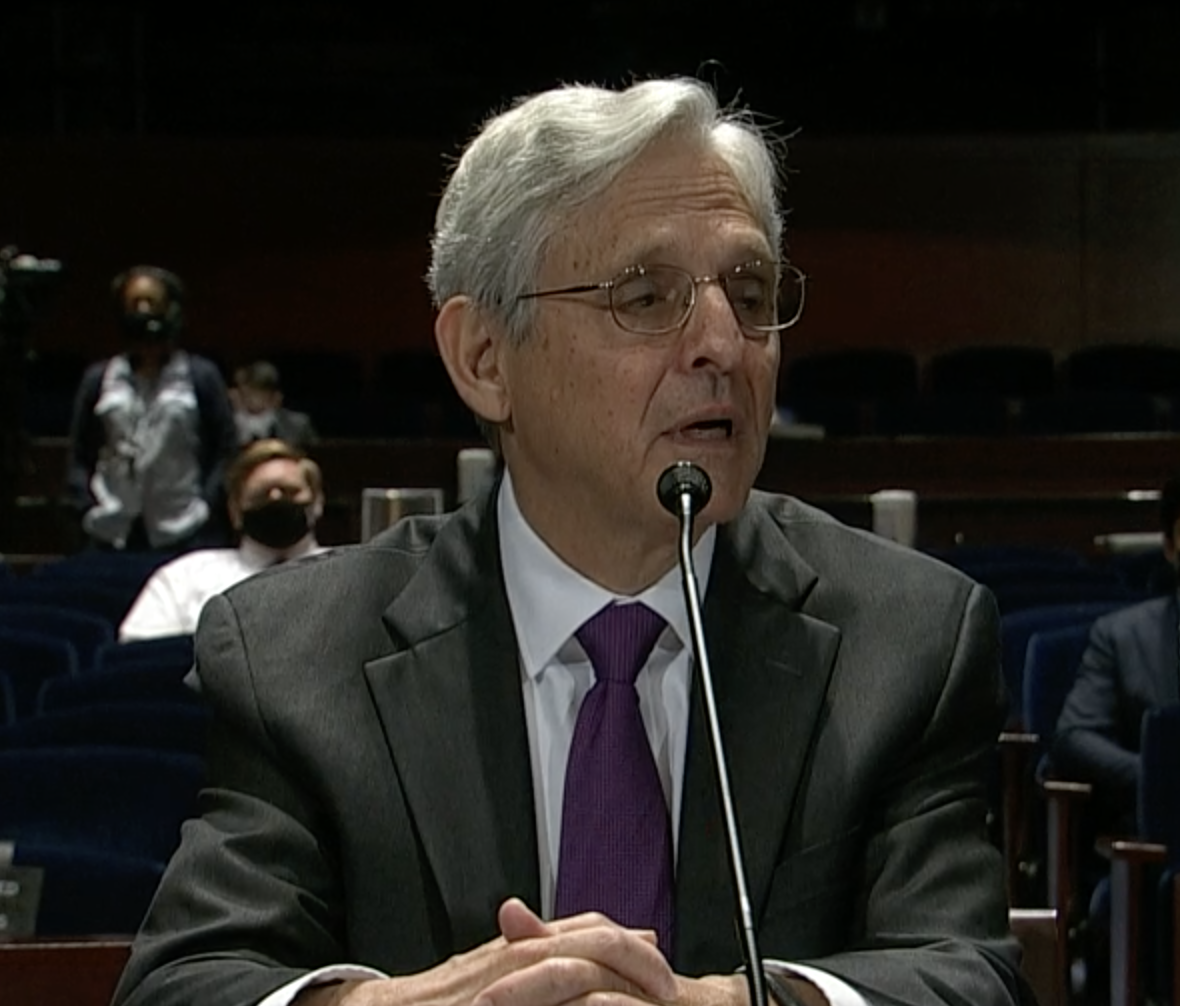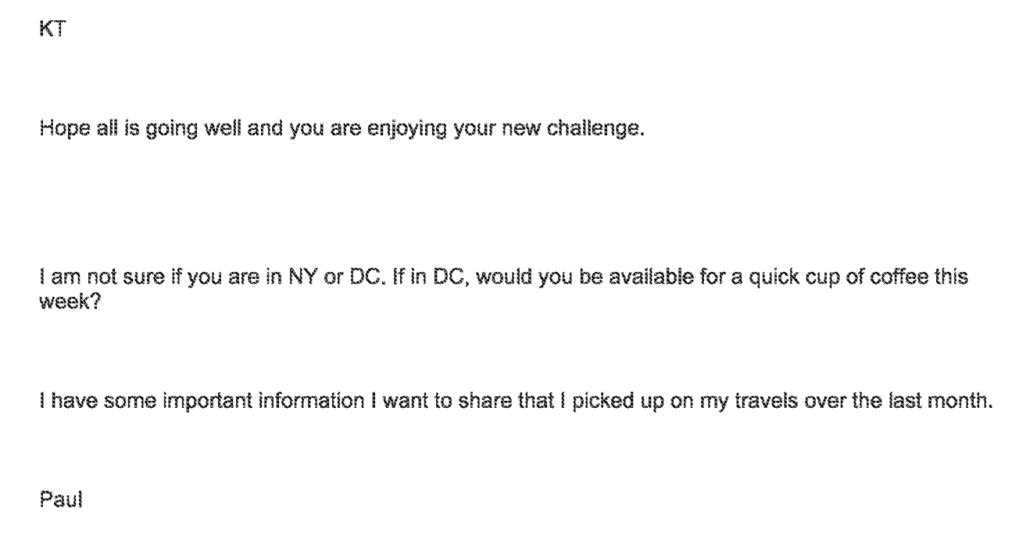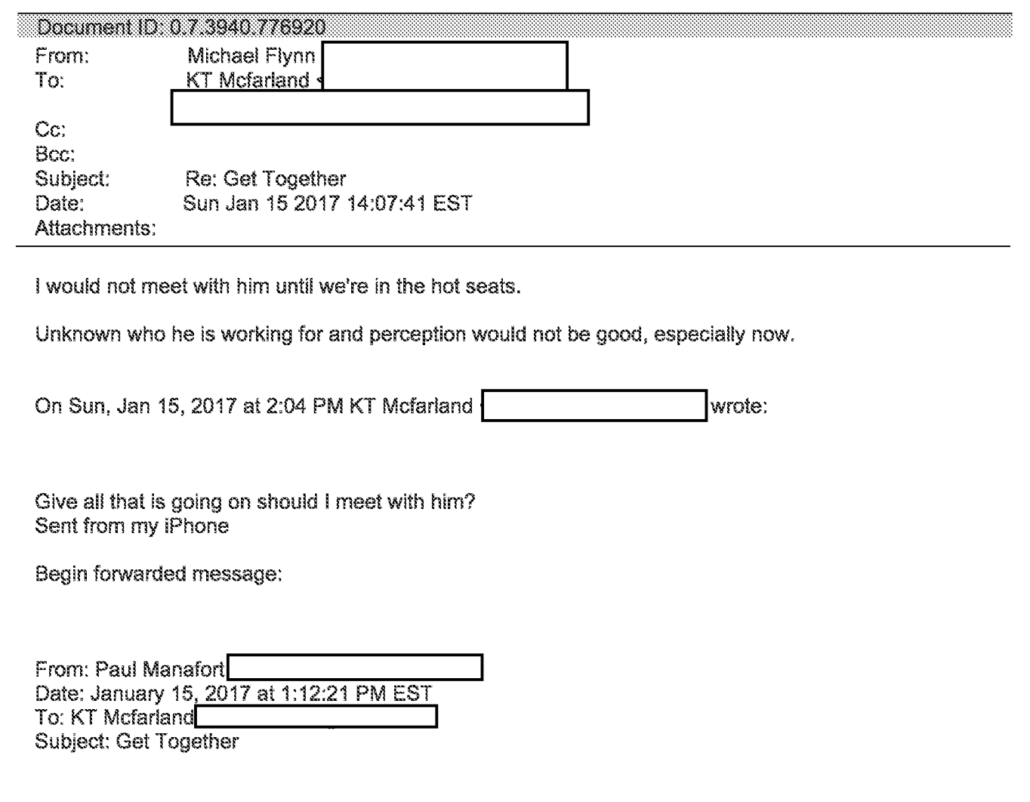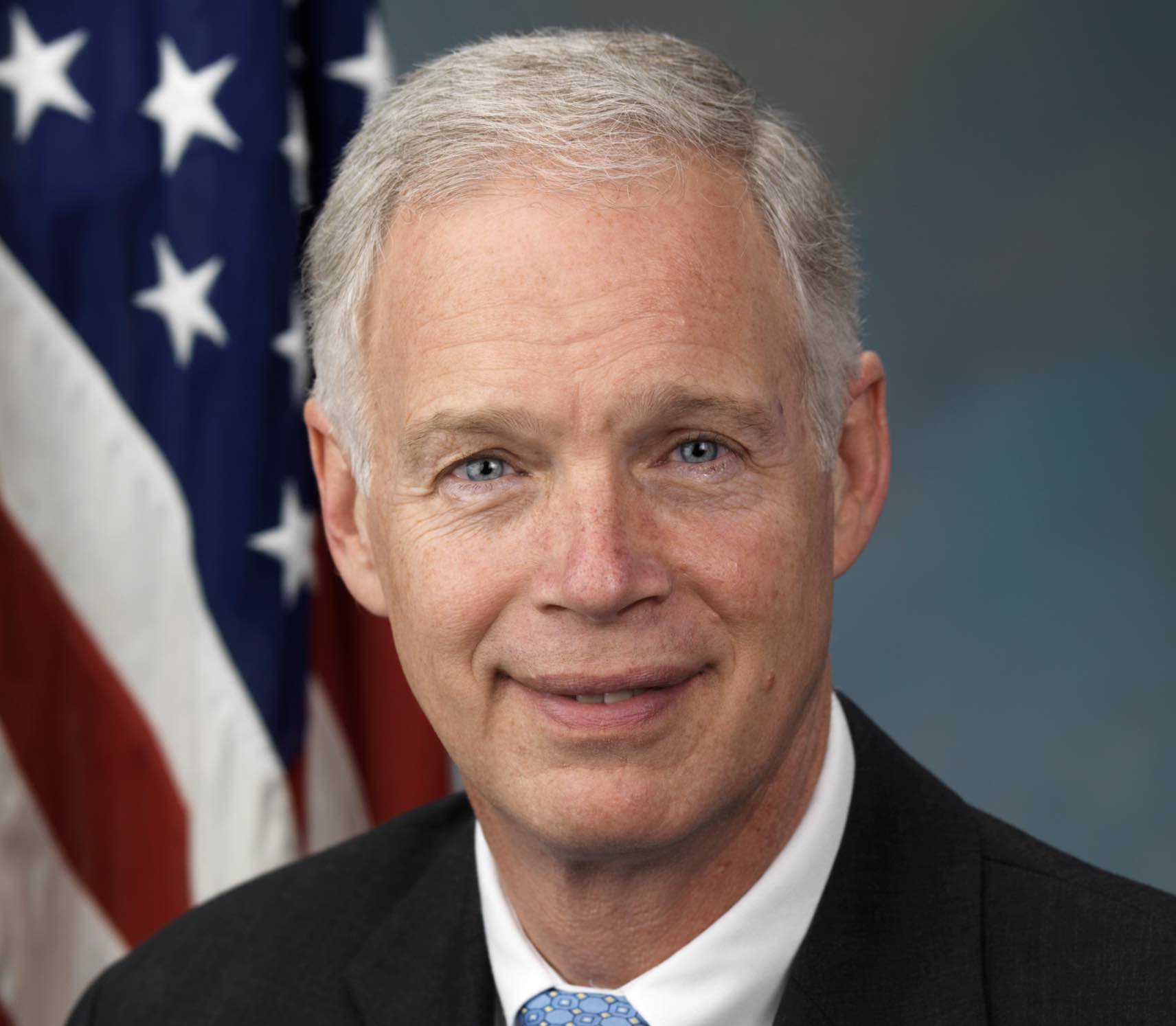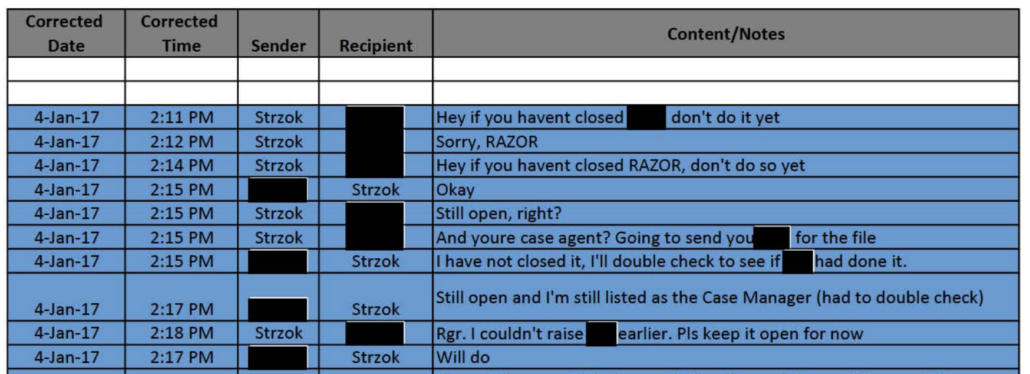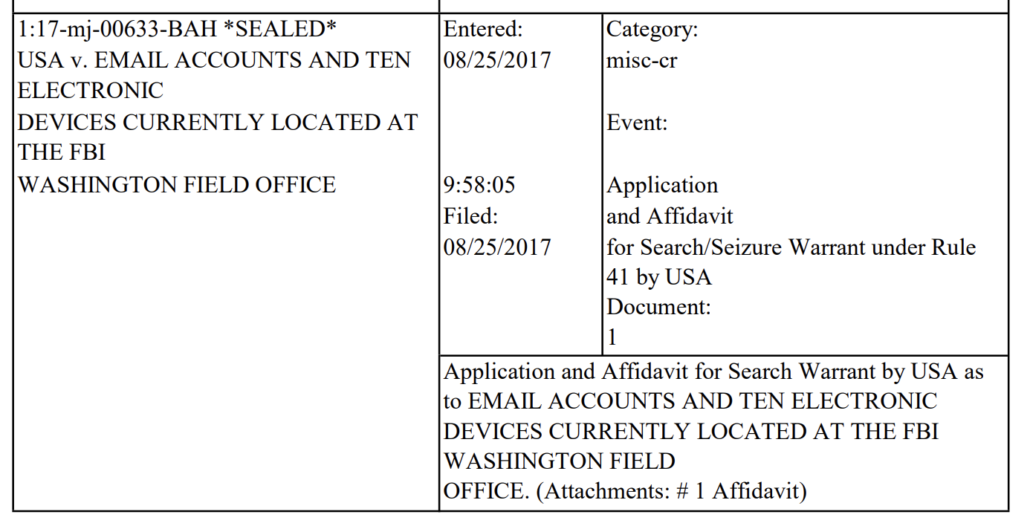Jeremy Liggett: A Little Bitty Fly that Jim Jordan Wants to Propagandize
Close to the end of a May 17, 2022 interview with the January 6 Committee, alleged Three Percenter Jeremy Liggett claimed that Joe Biden’s DOJ was weaponizing DOJ, “to include the CIA.”
I believe that we should have the First Amendment right. I believe that we should be able to protest at the Capitol. Okay? I don’t believe that you should hit law enforcement officers. Okay? I don’t believe that you should, you know, go into the building unless you’re invited. From some of the stuff that I’ve seen that’s fact, people were invited in. Okay? So let’s put that on the Capitol Police. Right? I think that the Capitol Police could have done a better job securing the building beforehand. I believe that the individuals that struck law enforcement officers or went in the Capitol inside should be charged, you know, for what they did. Okay?
But with saying that, okay, I believe that this administration, the Joe Biden administration, has weaponized the Department of Justice, okay, to include the CIA. Right? And I believe that you guys are — you guys, them, are swinging a big bat at little bitty flies. And it disheartens me, okay, that I am a citizen of a country right now, okay, that is locking people up on misdemeanor charges and keeping them in jail with no bonds, okay, for now months and possibly years. Okay?
The claim that Biden has weaponized DOJ (to include the CIA) is a common myth among the far right, just like the myth — which Liggett also espoused in the interview — that the election was stolen from Donald Trump.
In general, the claim that DOJ “is locking people up on misdemeanor charges and keeping them in jail with no bonds … for [] months and possibly years” is also false (though a defendant named Michael Gareth Adams, who was originally arrested in April 2021, just turned himself in Thursday after being on the lam from his January 6 trespassing charge and a Virginia hit-and-run warrant for over a year and he is at least temporarily being jailed pre-trial).
But Liggett’s case will likely be at the center of such false claims if a committee Kevin McCarthy gave the insurrectionist members of Congress to end their opposition to his election as Speaker is passed as part of the Rules package on Monday. (On George Stephanopoulos’ show this morning, Scott Perry, whose phone was seized last summer as part of the investigation, said he’d be a totally appropriate member to sit on the committee.) That’s because the arrests of five of Liggett’s associates as well as a related search of Liggett’s home are almost certainly at issue in events that led to the suspension of an FBI Agent, Stephen Friend, who will be a star witness of the committee.
As Friend described in a declaration shared with Chuck Grassley and Ron Johnson, he refused to participate in FBI arrests of a group of January 6 suspects charged the week of August 15 and arrested on August 24.
During the week of August 15, 2022, I became aware of imminent arrests of J6 subjects and searches of their respective residences within the FBI’s Jacksonville and Tampa Field Office areas of responsibility. Simultaneous takedowns were scheduled to occur on August 24, 2022. Due to perceived threat levels, an FBI SWAT team was enlisted to arrest one of the arrests.
[snip]
I responded that it was inappropriate to use an FBI SWAT team to arrest a subject for misdemeanor offenses and opined that the subject would likely face extended detainment and biased jury pools in Washington D.C. I suggested alternatives such as the issuance of a court summons or utilizing surveillance groups to determine an optimal, safe time for a local sheriff deputy to contact the subjects and advise them about the existence of the arrest warrant.
[snip]
I told them that I would not participate in any of these operations.
Though Friend has never said it, his complaints amount to a complaint that some January 6 defendants — including those associated with militias — are treated as a domestic terror investigation. In November, a whistleblower complaint Friend submitted was rejected by DOJ’s Office of Special Counsel.
Based on timing, it is virtually certain that the arrest Friend refused to participate in was that of Liggett’s associates in the “B Squad” or “Guardians of Freedom.” They were charged on August 16 and arrested on August 24, three of them in Florida. The only one not charged with felony civil disorder, Tyler Bensch, allegedly posted a picture of himself on January 6 with an assault rifle, which is the kind of thing that would lead the FBI to involve SWAT in an arrest.
There’s no public sign that Liggett has been arrested, though he claimed his house was searched the day that FBI made the other arrests. The case against his associates has been continued twice, once in October and again at the end of December, to allow for plea negotiations and the sharing of grand jury information (which sometimes suggests cooperation), with the next status due on February 14. Contrary to the claims of Friend and Liggett, all the men, even those accused of felonies, were released on personal recognizance.
Any investigation against Liggett, however, may be a different issue. Not only does the complaint against his associates claim he made the travel arrangements for forty men for January 6, not only did he conduct a training in advance on how to come armed to DC, but he’s a key pivot between the militias and the January 6 organizers.
On May 17, in his interview, the committee focused on the ties between Liggett and two people associated with the MAGA Bus Tour, Dustin Stockton and Charles Bowman.
Stockton, you’ll recall, was the organizer who made great PR for himself by telling Rolling Stone that he had objected to the violent rhetoric leading up to January 6.
But on December 30, 2020, the Committee showed in both Liggett’s and Amy Kremer’s depositions, Stockton was made a member of Liggett’s group.
Q Okay. And just if you focus on the first and third name that Bowman sends, Jeremy Liggett and Tarra Nicolle Hernandez. Just remember those. And if we look at exhibit 21, it is not an email you would have seen. I just want to ask whether he talked about it. You see that on December 30th of 2020, this person Tarra Hernandez, she was the name three on thatlist, sends to Mr. Stockton an email that says: ~ Welcome to Three Percenters, guardians of freedom. So, just a week before the event of January 6th, it is telling Mr. Stockton: Welcome to Three Percenters, guardians of freedom. It is an honor to have you on our team patriots. And then, if you look down there, there is a paragraph towards the bottom that says: Please be advised, per the founder, Jeremy Liggett, you have been moved and assigned as a full active member and not a prospect member. ~ Please disregard the mandatory meeting attendance mentioned in the attached documents. Again, just asking, do you recall him, Dustin, bringing up the notion that he joined the Three Percenters just a week before the event on January 6th?
A No. No. Yeah, no.
Stockton may have gotten involved via Charles Bowman, who did security for the Kremers at several of their events.
Q Do you remember who you used for security in December in D.C.
A Yeah. We used RMS Protective Services. And we also hired the — that first security company that we used for November 14th, we hired them again to be security at the Supreme Court.
Q There is a name we have seen, Charles Bowman, does he work with the security? Do you know that gentleman?
A I know, I do know Bowman. He — mean, he worked – I don’t know that he technically works with them, but — like as an employee, but I know he, you know, works with those guys.
Q Okay. So the folks that you used for November and it sounds like December or at least some of them, Bowman somehow worked with them?
A Yeah. I mean Bowman was I don’t how to describe Bowman. He’s like a big brother that’s always you know, it was lie he was always looking out for us and making sure, you know, that we were safe and whatnot.
Stockton was with both Bowman and Liggett at their December event.
Q Okay. I’m going to pull up page 8 of this exhibit. This is an email blast that Dustin Stockton sent out to some people on December 16th. And then he’s talking about being in an elevator with Charles Bowman, with the 3 percent team in D.C.
A I don’t know why they kept using that term.
Q Well, this is on Saturday December 12th and if you remember back from that welcome email, Dustin Stockton is the one who joined your group, but he’s in the back right here giving a thumbs up.
A Yeah. I know Dustin.
Q Oh, you do? Okay. How do you know Dustin Stockton?
A I’ve met him at rallies and things like that. He’s done speaking engagements. He seems like a nice guy.
Q Did he ever invite you to do speaking engagements?
A Yeah, uh-huh.
Q Did you meet up with him on December 12th?
A I’m trying to remember if — I’m sure there’s a possibility I did. Is that picture from December 12th?
Q This picture is from December 12th.
A Oh, yeah. Then I met with him on December 12th
According to Liggett, Bowman had been on the Guardians of Freedom Telegram chat for years.
Q Okay. So Mr. Bowman was on the Guardians of Freedom Telegram chats?
A Yeah, at one point.
Q Was there anybody else from the Women for America First organization that 11 were on those chats?
A No. No.
Q And was Mr. Bowman a member of Guardians of Freedom?
A No. No.
Q Okay. Why was he on the Telegram chats?
A I sent him an invite.
Q And why did you send him an invite if he wasn’t a member?
A Because he wanted to make sure that there was no one in our group that were saying anything bad about anything, because like I told you guys prior to or earlier, that there’s a lot of people — when you have — when you have organizations that try to get into the organization — they’re bad people. Like, from my knowledge, you know, the few times that I — that I spoke with him, I mean, they don’t want to be affiliated with any kind of extremists or anything like that. mean, that’s —
In addition to inviting Liggett to speak on January 5, Bowman also set Liggett up as a “marshal” for the Ellipse event on January 6. This is how Justin Caporale, one of the main organizers, described Liggett’s inclusion.
Do you remember having conversations with Women for America First organizers about having volunteers for the event?
A I don’t remember the specific conversation, but, yes, we would’ve had that conversation.
Q And what’s the job for volunteers at an event like this?
A To act as an extension of kind of the guest management team, you know, provide way finding, be greeters, you know, make sure if someone needs to find a rest room or food or water, that we can help them get to where they need to go.
Q Was there ever an instance where you thought these volunteers might be used for security purposes at the Ellipse event?
Q No, sir.
A Do you know who Charles Bowman is?
Q I do not.
A Do you remember having any conversations with a Charles Bowman?
A It’s very likely that I did, but I don’t — I don’t know or I don’t remember those conversations. His name does not ring a bell to me. I couldn’t pick him out of a line-up.
Q Okay. And, if we go up here, we see that Mr. Bowman ultimately sends a list of, you know, several names, including a Jeremy Liggett, L-i-g-g-e-t-t, and others: Robinson, Hernandez, Clark. For volunteers, do you know if there’s any vetting done for who’s selected to be a volunteer for these kinds of events?
A Most of the time, there’s not vetting done unless that volunteer is required to be in a secure location.
Q And so there would not have been a way for you to know, as the person requesting volunteers, whether any of these individuals were associated with a militia organization or paramilitary group like the Three Percenters or Oath Keepers or that kind of thing?
Q No, sir.
Liggett did serve as a “marshal.” Per his testimony, he in fact did show people where the bathroom was (in addition to escorting VIPs). He complained that he was not fed lunch as part of the deal.
Q Just a quick followup on that, Mr. Liggett. You said you were disappointed a little in your role on January 6th. Could you explain why you were disappointed?
A Yeah. It was boring. First of all, they put me in a pink vest. Okay? And no offense, I know you’re wearing a pink tie, all right, but I’m not the pink kind of guy. So I was in a bright orange and a bright pink vest. It was fricking cold as hell, okay, and they didn’t feed us lunch. And it was boring, completely boring.
Q The speeches or the activity that you were doing?
A Oh, I don’t know. I didn’t get to see the speeches. I was too busy walking people here and there and passing out signs and stuff. So I was disappointed.
[snip]
You guys should put that in your report, that it was cruel and unusual punishment by these rally people by not feeding us all day. So anyway — and you know they had the budget, because they ask for your money all the time, right.
 But that’s not the most damning part of his testimony (for which he had no attorney). When specifically asked if he was the Three Percenter group with which fellow Floridian Kelly Meggs had formed an alliance, he denied it, 100% (he also denied that the B Squad was a Three Percenter group or a militia at all, in spite of integrating the Three Percenter logo into their bling).
But that’s not the most damning part of his testimony (for which he had no attorney). When specifically asked if he was the Three Percenter group with which fellow Floridian Kelly Meggs had formed an alliance, he denied it, 100% (he also denied that the B Squad was a Three Percenter group or a militia at all, in spite of integrating the Three Percenter logo into their bling).
So Kelly Meggs is also —
A Who’s Kelly Meggs?
Q He is an Oath Keeper from Florida. And so he says: Well, we are ready for the rioters. This week I organized an alliance between Oath Keepers, Florida Three Percenters, and Proud Boys. We have decided to work together and shut this shit down. He posted it on December 19th, after President Trump’s “will be wild” tweet. Do you have —
A I don’t know.
Q Do you know who this Florida Three Percenter group would be?
A No. No. I can 100 percent, without a doubt, tell you that that is not in reference to anything that we were doing before or — well, I can’t say anything after, but before January 6th, there’s no way, no way.
Q Do you have any guess or hint about which Three Percenter group in Florida Mr. Meggs was talking about?
A I mean, my guess would be — if I were an investigator and I was investigating this, I would probably look into the Three Percenter-Originals. That’s probably who I would look at.
But as the J6C report itself explained, Liggett was the guy on the chats with Meggs.
Meggs bragged on Facebook that following President Trump’s December 19th tweet he had formed an alliance between the Oath Keepers, the Florida Three Percenters, and the Proud Boys “to work together to shut this shit down.”359 On December 19th, Meggs called Enrique Tarrio and they spoke for more than three minutes.360 Three days later, Meggs messaged Liggett, echoing his excitement about the December 19th tweet and specifically referencing the seat of Congress: “He called us all to the Capitol and wants us to make it wild!!!”361 Liggett said “I will have a ton of men with me” and Meggs replied that “we have made Contact [sic] with PB [Proud Boys] and they always have a big group. Force multiplier. . . . I figure we could splinter off the main group of PB and come up behind them. Fucking crush them for good.”362 Aside from Meggs, Stewart Rhodes brought in at least one local militia leader363 and Three Percenters into the Oath Keepers January 6th planning chats that came about following President Trump’s tweet.364
Liggett denied being the guy involved with Meggs, but he did not deny knowing Enrique Tarrio. Which is interesting for a stray reference in the deposition of Samuel Armes, the head of the Florida crypto currency association who, in the interest of war gaming possible threats, wrote the first draft of a document that came to be known as the Winter Palace document. After receiving the document from Armes, Tarrio’s girlfriend shared it with the head of the Proud Boys. Tarrio seems to have referenced in the context of the successful occupation of the Capitol.
J6C asked Armes if he knew Liggett, who they suggested had some association with the document.
I think then — actually, do you know someone named Jeremy Liggett in Florida?
A L-i-g
Q Yeah, L-i-g-g-e-t-t
A Jeremy Liggett. To the best of my recollection, I have never heard that name in my life. Jeremy Liggett? Is he into cryptocurrency?
Q I’m not sure. But it was just a question based on this document, so–
No, I’ve never heard of him in my life.
A Okay.
The document was shared around as a Google doc, so the people who accessed it would be accessible to investigators. But Liggett, even more than the Proud Boys, appears to be a fan of the 1776 invocation, which the document used.
Liggett says that the people who are being prosecuted — like five of his associates (four of whom are accused of pressuring cops in the Tunnel, the worst of the fighting) — are just “little bitty flies” who shouldn’t be prosecuted. He claims to believe false claims about the election, about the treatment of Jan 6 defendants, and about FBI more generally.
And that is the point of this committee. It is the reason why, under the Mueller investigation precedent, DOJ’s inability to share grand jury information with Congress won’t stop this committee from being a problem.
Jim Jordan and Scott Perry want to use their committee to claim that men like Liggett, someone who ties the Ellipse event organizers directly to the worst of the violence, should not be investigated. They want to magnify the complaints of people like Friend, who call a DC-led investigation those who attacked the Capitol an abuse of FBI authority.
The reason why is clear — because the existence of someone like Liggett, who was escorting VIPs even as he was paying for travel of men involved in the tunnel fight — makes their own role in the insurrection more problematic. This committee is not about overseeing the FBI. It’s about trying to spin their own attack on the Constitution as something else than it was.
Update: Added the chat between Liggett and Meggs.



